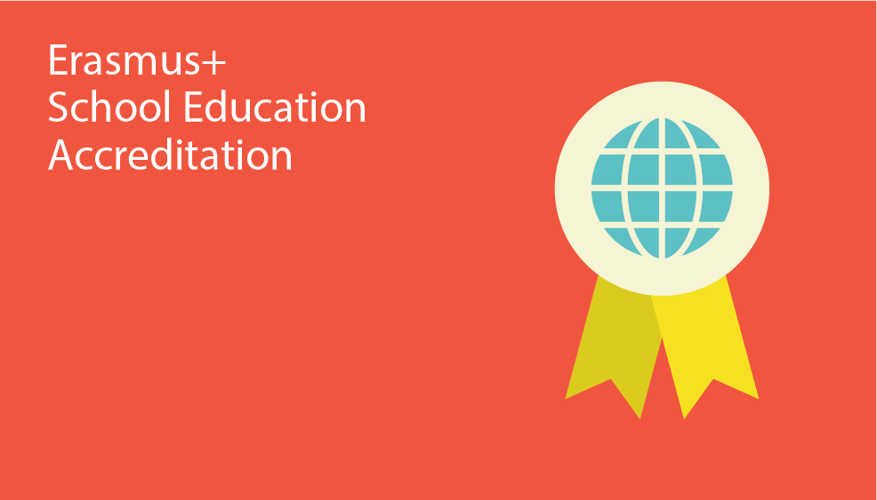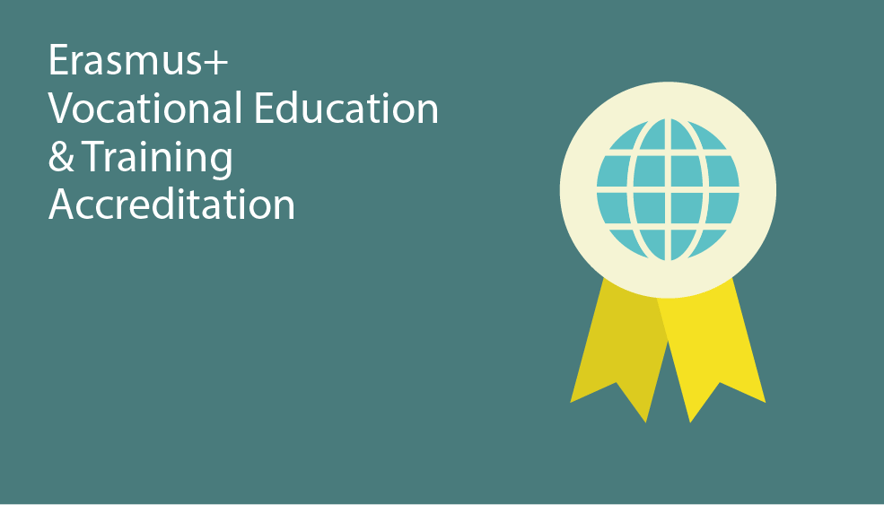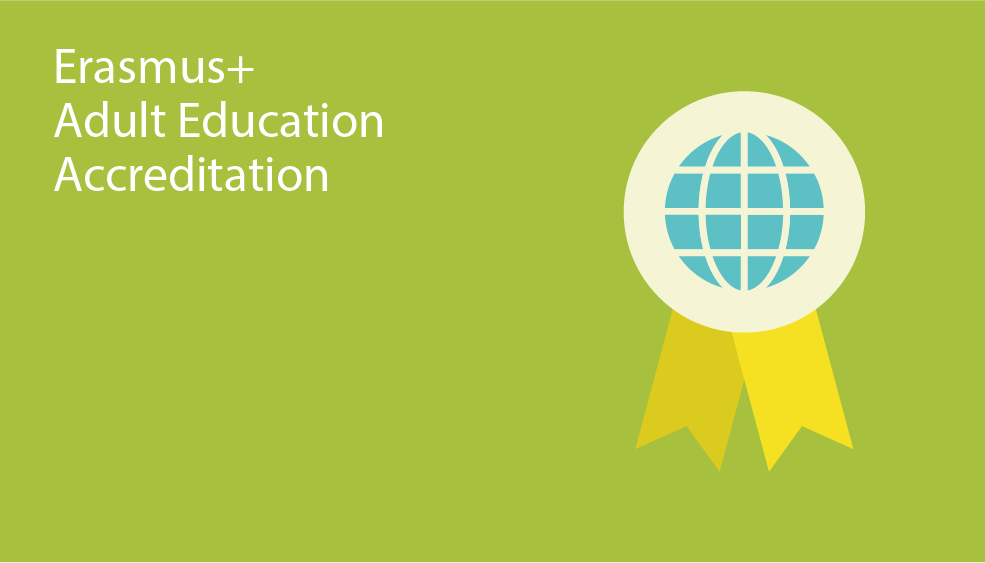Is Your Organisation Eligible for Erasmus Accreditation?
If you regularly carry out Erasmus Mobility projects, then you know the benefits Erasmus has for your organisation and learners. You've built up experience, your organisation has capacity, and you intend to get involved in 2024. So how can you prepare to hit the ground running in the new year? Did you know that you can now limit your paperwork with Erasmus Accreditation?
An accredited organisation has:
- simplified access to funding opportunities, and an alternative method to the individual application process.
There are slight differences for each sector, so be sure to check the details on our Accreditation page, but the first thing you'll need to identify is whether your organisation is eligible for Erasmus Accreditation.
We've compiled this list of eligible organisations by sector to help you. If your organisation is listed below, you can start planning next steps. The deadline to apply for Adult Education, School Education and VET accreditation is 1st October 2024 (11am Irish time).
Please ensure that you are also complaint with the eligibility criteria for certain types of organisations as listed here: A Quick Guide to Erasmus+ and European Solidarity Corps Eligibility.
Good luck and we look forward to supporting you in the new programme!
School Education

School Education organisations eligible for the 2023 Erasmus Call for Accreditation:
- Schools listed on the Department of Education with a school roll number
- Colleges of Further Education providing post-primary education
(Junior cycle and Senior cycle to non-mature students) - The Early Start Units in Primary Schools listed on the Department of Education
- In early childhood education, partner services in contract for the Core Funding scheme with the Department for Children, Equality, Disability, Integration and Youth providing that they have eligible legal status as per A Quick Guide to Erasmus+ and European Solidarity Corps Eligibility (leargas.ie)
- The Rutland Street Preschool.
Local and regional public authorities, coordination bodies and other organisations with a role in the school education field may apply for Accreditation as an individual organisation or as a Consortium Coordinator:
- Association of Community and Comprehensive Schools
- Association of Secondary Teachers, Ireland (ASTI)
- Association of Trustees of Catholic Schools
- Catholic Education, an Irish Schools Trust (CEIST)
- Catholic Primary School Management Association
- Children’s Rights Alliance
- Dublin West Education Centre on behalf of Junior Certificate School Programme (JCSP)
- Dublin West Education Centre on behalf of Professional Development Service for Teachers (PDST)
- Early Childhood Ireland
- Edmund Rice Schools Trust (ERST)
- Educate Together
- Education and Training Boards
- Education Centres
- Education Research Centre (ERC)
- Education Welfare Services, Child and Family Agency (TUSLA)
- ETBI (Accreditation as an individual organisation)
- Irish Federation of University Teachers (IFUT)
- Irish National Teachers' Organisation (INTO)
- Irish Primary Principals Network (IPPN)
- Foras Pátrúnachta na Scoileanna Lán-Ghaeilge Teoranta
- Le Chéile Schools Trust
- Lifeways Ireland
- Marino Institute of Education on behalf of PPLI – Post Primary Languages Initiative
- National Association of Principals and Deputy Principals (NAPD)
- National Parents Council - Primary
- National Parents Council – Post-primary
- Presentation Brothers School Trust
- The National Council for Curriculum and Assessment (NCCA)
- Teachers' Union of Ireland
- The Teaching Council
- Gaeloideachas
Vocational Education and Training

Education providers implementing eligible education programmes and activities in the field of vocational education and training:
|
Eligible education programmes |
Examples of implementing organisations |
|
Initial vocational education and training |
VET schools, institutes, centres, community colleges, apprenticeship providers, apprenticeship coordinating bodies, national authorities, VET representative bodies and other providers |
|
Continuing vocational education and training |
VET schools, institutes, centres, apprenticeship providers, apprenticeship coordinating bodies national authorities and other providers; professional associations and chambers, trade unions; open universities, higher education institutes |
Local and regional public authorities (including ETBs), coordination bodies and other organisations with a role in the field of vocational education and training:
|
Role in the educational system |
Examples of implementing organisations |
|
Establishing and managing VET provider institutions |
Local, regional and national authorities |
|
Defining and implementing a vocational education and training strategy at any level |
Employment offices and departments; regional and national authorities; VET support services, coordination bodies, research bodies |
|
Supervision and quality control of VET provision |
Local and regional and national authorities; inspectorates and specialised institutions in national context |
|
Defining qualification framework, standards and opportunities for continuous professional development educators in VET |
Local regional and national authorities; inspectorates and specialised institutions in national context; professional associations; trade unions |
|
Providing career guidance and professional counselling for current and prospective VET learners and recent graduates |
Social and community centres, humanitarian organisations, NGOs, professional associations and chambers |
|
Facilitating traineeships and entering of VET learners, apprentices and recent graduates into the labour market |
VET providers, Chambers of commerce, employment offices and departments, VET centres, talent management organisations, coordination bodies. |
Adult Education

|
Eligible education programmes and activities |
Examples of implementing organisations |
|
Formal primary and secondary education for adults |
Evening schools, second chance schools, further education institutions/colleges |
|
Formal education programmes for adult migrants |
Schools, community centres, NGOs, private providers, social enterprises, humanitarian organisations, further education institutions/colleges, training centres |
|
Non-formal adult education courses implemented by qualified trainers |
Community centres, NGOs, libraries, third age universities, folk universities, open universities, private providers, trade unions and other organisations providing specialised learning courses (e.g. language, digital skills, other key competences), community education providers, community and local development organisations, and other organisations working in community development/local development of marginalised areas |
|
Informal education and integration programmes for persons at risk of societal exclusion (e.g. disabled persons, migrants, elderly, persons affected by poverty) |
Cultural organisations, libraries, museums, theatres, music and art organisations, , NGOs, humanitarian organisations, craft organisations Community Education providers, Further Education Institutions/colleges, community and local development organisations and other organisations working in community development/ local development of marginalised areas. |
|
Societal re-integration programmes for persons formerly or currently serving penitentiary terms or having been convicted of other criminal infractions |
Prisons and other penitentiary institutions, social service providers, NGOs, humanitarian organisations, Community Education providers, Further Education Institutions, Community Education Providers, NGO’s, community and local development organisations, and other organisations working in community development/ local development of marginalised areas. |
Local and regional public authorities, coordination bodies and other organisations with a role in the field of adult education:
|
Role in the educational system |
Examples of implementing organisations |
|
Establishing and managing adult education institutions |
National, Local and regional authorities, ETB’s |
|
Training, hiring and managing adult education staff |
Employment offices and departments; national, local and regional authorities; coordination bodies; professional associations, ETB’s |
|
Defining and implementing an adult learning strategy at any level |
Employment offices and departments; national, local and regional authorities; coordination bodies, ETB’s |
|
Supervision and quality control of adult education provision |
National, Local and regional authorities, ETB’s; inspectorates and specialised institutions in national context |
|
Defining qualification framework, standards and opportunities for continuous professional development educators providing adult education |
National, Local and regional authorities, ETB’s; inspectorates and specialised institutions in national context; professional associations; trade unions |
|
Providing professional support for educators providing adult education |
Professional associations of trainers and educators, Adult Education Departments at Third level |
|
Providing career guidance, professional counselling and psychological support for adult learners |
Social and community centres, community education providers, further education institutions, humanitarian organisations, NGOs, psychologist associations, National Guidance/ Counselling bodies, local employment services |
|
Conducting research to support the development of the adult education offer and outreach |
Research centres, universities, National Adult Education Association, Professional associations, National, regional and local institutions/ bodies |
If you have queries about your organisation's eligibiilty, please contact:
Adult Education: Jemma Lee
School Education: Deirdre O'Brien
Vocational Education and Training: Elva Duggan
